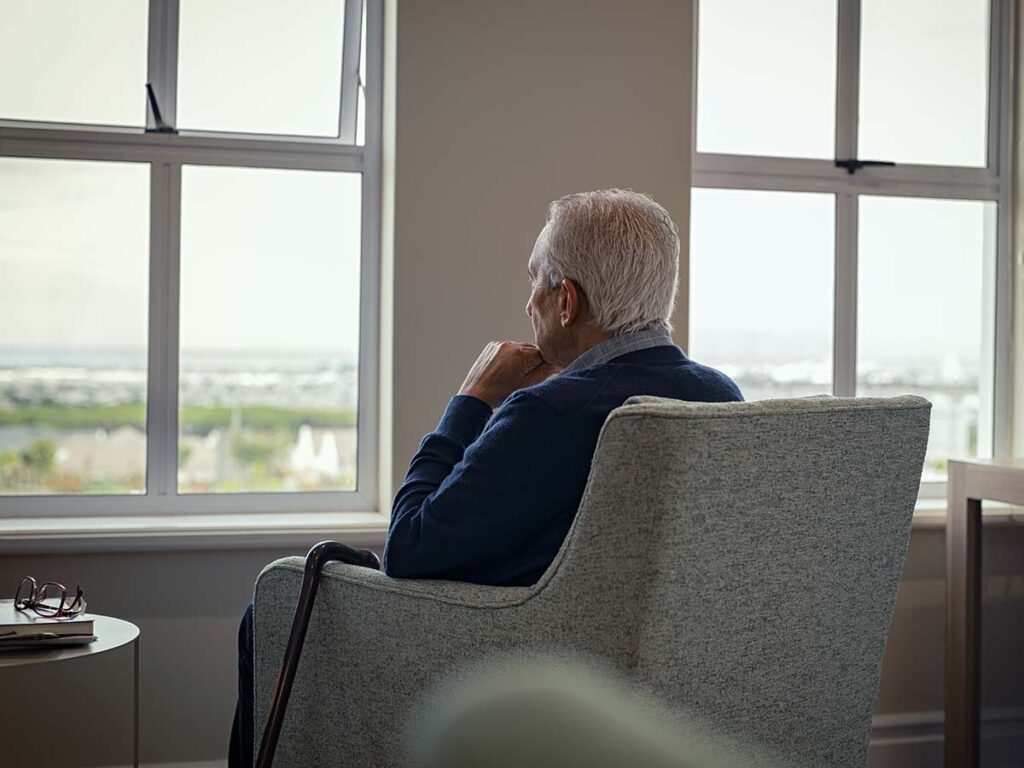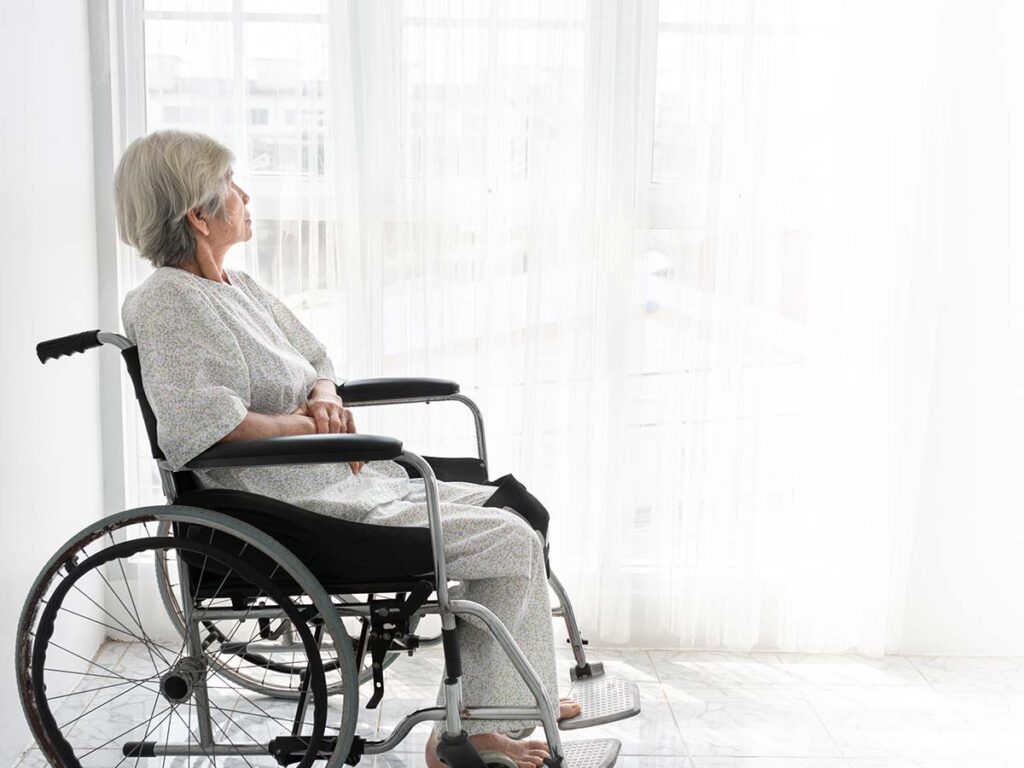Why More Nursing Homes Are Being Sued for Resident Falls
Across New York, more families are taking legal action after a loved one suffers a fall in a nursing home. As fall-related injuries continue to rise among nursing home residents, the number of nursing home fall lawsuits has surged. These lawsuits often point to negligence, improper care, and the failure of nursing homes to take proper steps to prevent falls.
Falls in nursing homes are not always accidents—they are frequently the result of systemic issues. If your loved one was injured in a facility due to a preventable fall, a nursing home fall attorney can help you explore legal options. Holding the facility accountable can protect other residents from similar harm.

Why Are Nursing Homes Facing More Lawsuits for Falls?
1. An Aging and Vulnerable Population
Elderly nursing home residents are at higher risk for falls due to mobility challenges, poor vision, medication side effects, and underlying health issues. Many of these residents are admitted to skilled nursing facilities specifically because they need assistance to remain safe. When facilities fail to provide proper supervision and safety measures, it significantly increases the chance of a resident’s fall.
2. Fall Risk Assessments Are Often Ignored
A key responsibility of any nursing home is to identify each resident’s fall risk and implement personalized fall prevention measures. These might include using fall pads, bed alarms, or ensuring adequate supervision by staff members. Yet, too often, fall prevention is treated as an afterthought—until a serious injury occurs.
Facilities that do not act on clear risk factors may be held legally liable when a preventable fall occurs.
3. Understaffing and Inadequate Training
Many nursing home lawsuits stem from improper care caused by understaffing. When staff members are overworked or improperly trained, they may neglect to monitor residents at risk, respond to calls for assistance, or notice environmental hazards like wet floors or poor lighting.
The ultimate responsibility lies with the nursing home administration to hire, train, and supervise competent staff who can protect residents from dangerous falls.
Common Injuries and Damages in Nursing Home Fall Cases
Falls happen frequently in long-term care environments, but the consequences can be devastating. Common injuries include:
- Broken bones
- Head trauma
- Internal bleeding
- Lasting mobility loss
In severe cases, fall-related complications can lead to wrongful death. Families may seek compensation for medical bills, pain and suffering, emotional distress, and—in some cases—punitive damages. Legal claims often also cite nursing home negligence or nursing home abuse when there’s evidence of improper care or failure to prevent future falls.
Legal Grounds for Nursing Home Fall Lawsuits
Many fall claims are built on allegations of:
- Failing to assess or monitor the resident’s fall risk
- Ignoring federal regulations regarding staffing or care
- Inadequate care planning or documentation in medical records
- Failure to implement reasonable fall prevention protocols
- History of elder abuse, neglect, or patient neglect
- Lack of environmental safeguards in the care facility
Nursing homes are legally liable when their actions—or inaction—lead to preventable injuries. Whether in assisted living facilities or skilled nursing homes, the law is clear: these institutions must protect residents by providing a safe environment and adequate care.
Can a Nursing Home Be Held Liable for a Fall?
Yes. If a fall occurs due to negligence, the nursing home may be liable. In many nursing home fall cases, liability rests on the fact that the injury could have been avoided with proper fall prevention. This may involve everything from ensuring the use of fall pads to adjusting medications or placing high-risk residents closer to nurse stations.
An experienced attorney can review medical records, facility policies, staffing logs, and witness accounts to determine if the facility should be held accountable. Even a single preventable fall can be the basis for a lawsuit—especially when it results in serious harm.
How a Nursing Home Fall Attorney Can Help
A nursing home fall attorney helps families hold negligent facilities accountable. Legal teams investigate what caused the fall, whether proper fall prevention measures were in place, and whether the facility followed applicable laws.
They also help families recover money for:
- Emergency care and ongoing medical treatment
- Pain and suffering
- Wrongful death claims
- Future care and safety planning
Because many residents lack the ability to speak up for themselves, legal action is often the only way to protect all the residents from harm and ensure the facility takes steps to prevent future falls.
The Role of Skilled Nursing Facilities in Fall Prevention
Skilled nursing facilities must take a proactive approach to fall prevention. That means assessing fall risk at admission, creating individualized care plans, and regularly updating protocols. They must also provide staff with the training and tools needed to stop preventable falls, including:
- Use of bed alarms or assistive equipment
- Addressing poor vision or mobility limitations
- Removing trip hazards and improving lighting
- Adjusting care as health conditions change
- Providing adequate supervision at all times
When these steps aren’t taken, and a resident suffers an avoidable fall, the facility can be held legally responsible.

What Families Should Know About Filing a Fall Lawsuit
To bring a fall claim, families should document everything—from the fall itself to conversations with staff, photographs of injuries, and relevant medical records. An attorney can help you build a case, ensure federal regulations are followed, and pursue justice for your loved one.
Filing a lawsuit isn’t just about compensation—it’s about accountability. Facilities that neglect their duty of care must be held to legal and ethical standards.
Learn more about why more nursing homes are being sued for resident falls. Call Greenstein & Pittari, LLP at (800) 842-8462 to schedule your free, no-obligation consultation. You can also reach us anytime through our contact page. Let us help you take the first step toward justice and recovery.
FAQs: Nursing Home Fall Lawsuits in NYC
What makes a nursing home legally liable for a resident’s fall?
A nursing home can be liable if the fall resulted from negligence, such as failing to assess a resident’s fall risk, not following safety protocols, or ignoring signs of nursing home neglect.
How can families prove that a fall was preventable?
An attorney will investigate the facility’s fall prevention measures, staffing levels, and medical records. If fall prevention steps weren’t followed, or if improper care contributed to the fall, the facility may be held responsible.
What damages can be recovered in a nursing home fall lawsuit?
You may be entitled to compensation for medical bills, pain and suffering, emotional trauma, and—if applicable—wrongful death damages.
Are falls in skilled nursing facilities always grounds for a lawsuit?
Not every fall results in legal action. However, if the fall was due to negligence, lack of supervision, or failure to follow fall prevention protocols, you may have a strong case.
How soon should I contact a lawyer after a fall occurs?
It’s best to contact a lawyer as soon as possible to preserve evidence and ensure your loved one’s rights are protected. Delays can hurt your case or reduce the chance of a successful claim.
Can I sue an assisted living facility for a fall?
Yes, assisted living facilities can also be held liable if they failed to protect residents or ignored known fall risks. Each case depends on the specific facts and level of care owed to the resident.
